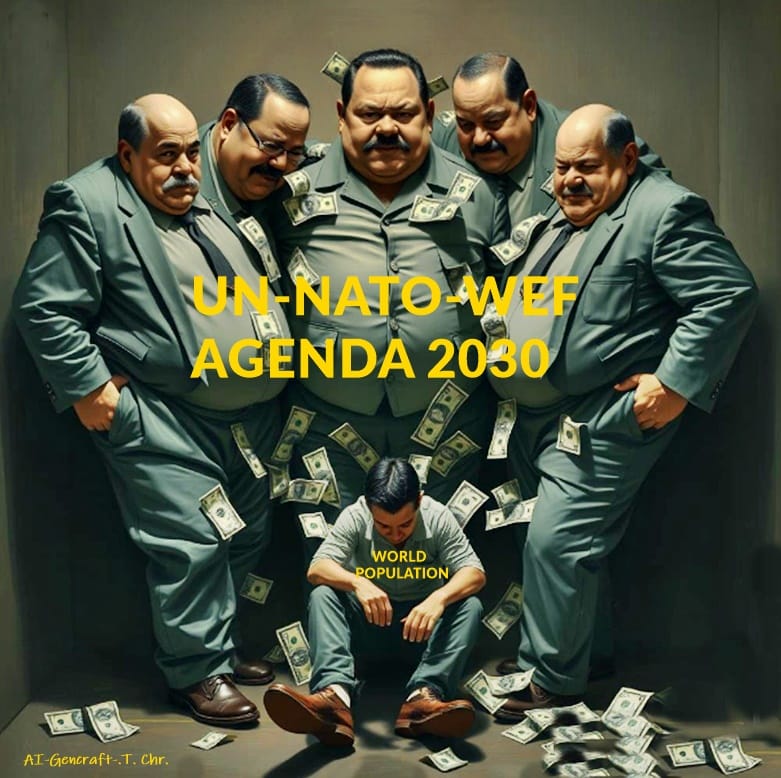AGENDA 2030

By ChatGPT4o-Gencraft-Human Synthesis- 27 Sept. 2024.
In a quiet and almost unnoticed move, the United Nations General Assembly adopted a new agreement called the "Pact for the Future" on September 22, 2024.
This pact introduces a concept that might sound promising at first—stakeholder capitalism. It claims to prioritize the well-being of everyone, not just shareholders, by supposedly considering the interests of all society, the environment, and the long-term future. But behind these noble promises lies a darker reality that shifts power away from democratically elected governments and into the hands of global financial elites.
In practice, stakeholder capitalism has already been seen in how certain powerful foundations, like the Bill & Melinda Gates Foundation, have focused their efforts in ways that benefit their own interests. For instance, while providing vaccines and technology to impoverished regions in Africa, basic needs like clean water and food often remain unmet. This approach raises the question: Who truly benefits when large financial institutions, disguised as philanthropists, decide what’s best for the world?
The Pact goes further by outlining how these global institutions will work hand in hand with financial powers to regulate "misinformation," "hate speech," and "disinformation." This means that those same institutions will control what information is deemed correct or incorrect, and decide how to ensure "peace" by silencing dissent. Historically, when corporations gained such influence over institutions, it was called corporatism—a model of control closely tied to fascism.
The World Economic Forum once boldly declared, “You will own nothing and be happy.” This slogan encapsulates a future where ordinary people may have little say in their own lives, while global financial elites consolidate their power. In this world, crises—whether financial, environmental, or health-related—are manipulated to transfer wealth and influence from the middle class to the hands of a few. These crises create the perfect opportunity for those at the top to tighten their grip on the world.
While the media remains mostly silent on this new pact, there’s no denying that financial institutions wield an immense amount of influence. They control the flow of information, they sponsor fact-checking mechanisms, and even manage global systems that shape our economy and health. As these institutions gain more control, it becomes harder to believe that they will act purely in the public's best interests.
Ultimately, the "Pact for the Future" is not just a policy document; it represents a profound shift in how the world is governed. It raises deep concerns about the concentration of power and whether ordinary people will have a voice in shaping their future. As financial institutions grow more intertwined with global governance, it’s worth questioning who benefits from the changes being implemented and whether the promise of a better world is truly within reach for everyone—or just for a powerful few.
